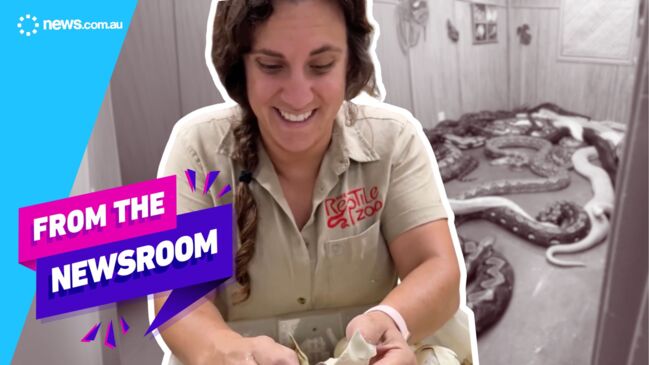‘Pressing public health issue’: Doctor’s warning amid STI case surge in Australia
Australians have been urged to be more vigilant about their sexual health amid a “concerning” rise in STI cases across the nation.

Australians have been urged to be more vigilant about their sexual health amid a “concerning” rise in STI cases across the nation.
Data from the Royal College of Pathologists of Australasia (RCPA) showed a staggering incease of nearly 20 per cent in gonorrhoea cases between 2022 and 2023 – with another surge expected this year. Syphilis cases are also on the up – tripling over the past decade – as are rates of HIV.
At the same time, there has not been “a corresponding increase in testing rates”, RCPA spokesperson and Southern IML Pathology medical director, Associate Professor Caitlin Keighley said.
“The rise in STIs such as gonorrhoea, syphilis, and HIV is a pressing public health issue that requires immediate attention in Australia,” Associate Prof Keighley said.

She added that regular testing is crucial to ensuring early detection of sexually transmitted infections, initiating appropriate treatment, and preventing their spread.
Associate Prof Keighley specifically called on “older adults who may not be forthcoming about changes in their sexual practices” to get tested.
“Low testing levels mean that infections can go undiagnosed and untreated, leading to severe health complications and further transmission,” she said.

“This leaves many individuals unknowingly at risk and is particularly concerning for pregnant women, where untreated STIs can result in congenital infections with devastating outcomes.”
Aboriginal and Torres Strait Islander peoples face “substantially higher” STI rates compared to non-Indigenous Australians, the RCPA said, with the prevalence of both gonorrhoea and syphilis more than five times higher.
“Regular STI testing is a simple yet vital step that individuals can take to protect their health and the health of their partners,” Associate Prof Keighley said.

Australia’s growing STI rates were first flagged in the wake of the pandemic last year by the Royal Australian College of General Practitioners (RACGP).
It coincided with a national decline in condom use, according to a La Trobe University study.
At the time, Chair of RACGP Specific Interests Sexual Health Medicine, Dr Sarah Whitburn, urged GPs to be more proactive in offering asymptomatic STI screenings, especially to young people.
“GPs need to ask about common STI symptoms regularly and to consider it a differential when people attend for dysuria or any genital symptoms, but also to discuss and offer asymptomatic screening opportunistically,” told newsGP.
“Offering asymptomatic STI screening when we see young people can be as simple as requesting a urine sample or offering self-taken swabs.
“Another option is to offer STI screening when discussing contraception, cervical screening or during general check-ups.”






